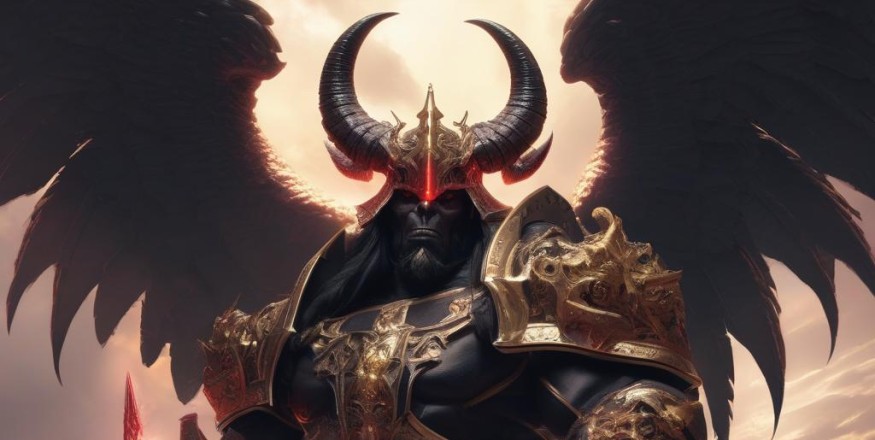 x
x
"Azza"
Origins and Etymology
- Name Variations: Azza is sometimes referred to as Azael or Azazel, though these names can represent different entities in some traditions.
- Meaning: The name "Azza" is derived from the Hebrew word "עַזָּא" (Azza), meaning "strong" or "mighty."
Mythological and Religious Context
- Jewish Tradition: In Jewish lore, Azza is one of the Watchers, a group of angels mentioned in the Book of Enoch. The Watchers were sent to Earth to watch over humans but ended up falling from grace.
- Book of Enoch: According to the Book of Enoch, Azza, along with another angel named Semyaza, led a group of 200 angels to Earth. They descended on Mount Hermon and took human wives, which was against divine law. This union produced the Nephilim, a race of giants.
- Role in the Fall: Azza is often depicted as one of the leaders in the rebellion against God. He, along with other fallen angels, taught humans forbidden knowledge, such as sorcery, astrology, and the use of weapons.
Characteristics and Symbolism
- Appearance: Descriptions of Azza's appearance vary, but he is often depicted as a powerful and imposing figure, befitting his name, which means "strong."
- Attributes: Azza is associated with strength, rebellion, and forbidden knowledge. He symbolizes the consequences of defying divine order and the corrupting influence of power.
Punishment and Legacy
- Punishment: According to various texts, Azza and the other fallen angels were punished severely for their transgressions. They were bound and cast into the abyss, a place of darkness and torment, to await judgment.
- Legacy: Azza's story serves as a cautionary tale about the dangers of hubris and the pursuit of forbidden knowledge. It also reflects themes of divine justice and the struggle between good and evil.
Cultural Impact
- Literature and Art: Azza has been a subject of interest in various works of literature and art, often depicted as a tragic or malevolent figure. His story has influenced many later works that explore themes of rebellion and redemption.
- Modern Interpretations**: In contemporary culture, Azza and other fallen angels are often reinterpreted in novels, movies, and other media, sometimes portrayed with more nuance and complexity.
Comparative Mythology
- Similar Figures: Azza shares similarities with other mythological figures who defied divine authority, such as Prometheus in Greek mythology, who stole fire from the gods to give to humanity.
In summary, Azza is a complex figure whose story spans various religious and mythological traditions. He embodies themes of rebellion, forbidden knowledge, and divine punishment, serving as a powerful symbol of the consequences of defying the divine order.
ns 15.158.61.10da2





















